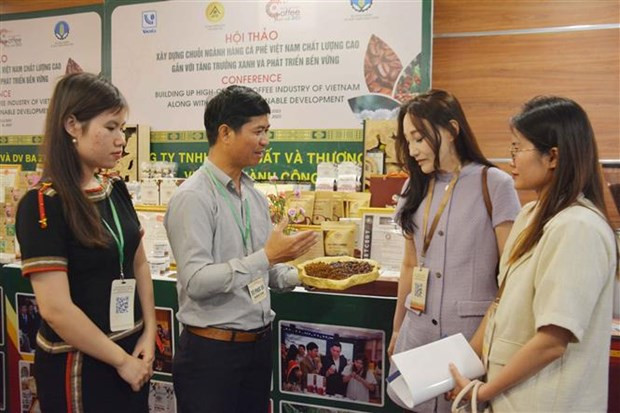According to a report delivered at the event, coffee is one of Vietnam’s key agricultural products with a combined area of over 710,000 hectares and a total output of 1.8 million tonnes per year. The sector has created jobs and income for around 2 million people.
Vietnam is currently the world’s second largest coffee exporter, after Brazil, and ranks first in terms of Robusta coffee exports, with the export turnover surpassing 4 billion USD las year, accounting for 15% of the world market share. This product has been shipped to at least 85 countries and territories.
However, Vietnamese coffee exported is mainly raw and unprocessed, so the added value is not high, the report said, adding that the production currently focuses on exploiting the potential and productivity of coffee trees to the maximum without paying much attention to green and sustainable development.
Permanent Vice Chairman of the Dak Lak People’s Committee Nguyen Tuan Ha said that the green and sustainable development of high-quality coffee is considered a suitable direction to stimulate and exploit the domestic and foreign coffee markets, thus bringing higher export value and economic benefits to growers.
He stressed the need to develop high-quality coffee, build concentrated raw material areas with certification and traceability, boost value chain-based production linkages, attract investment in deep processing, and finding new markets.
At the workshop, participants shared good practice and proposed measures to develop the high-quality coffee industry in association with green growth and sustainable development.
Foreign delegates also shared information on the demand of the foreign markets, and pointed to opportunities for Vietnamese coffee products.
















